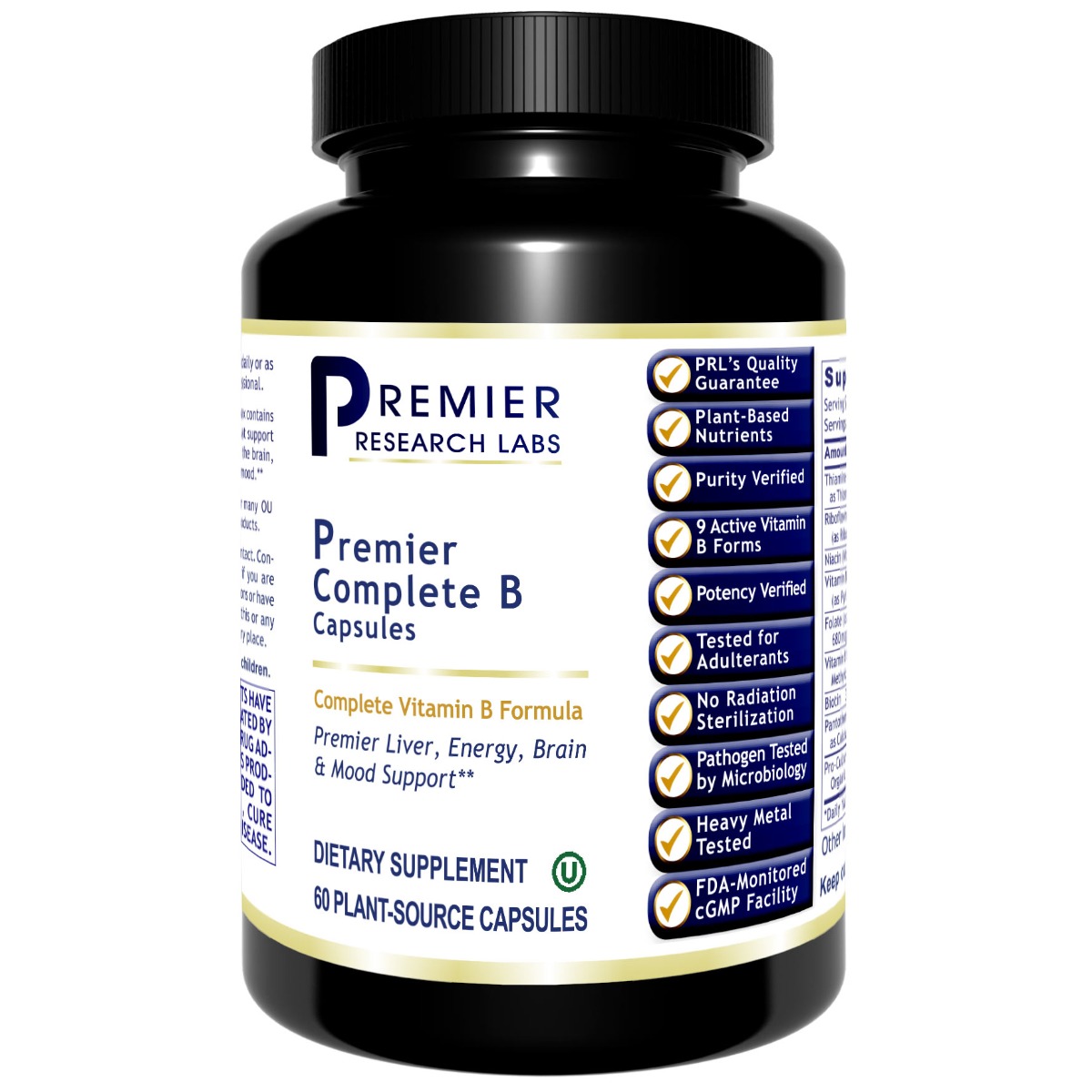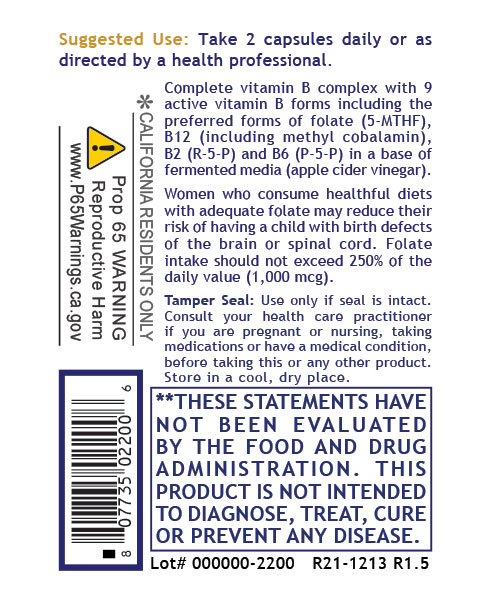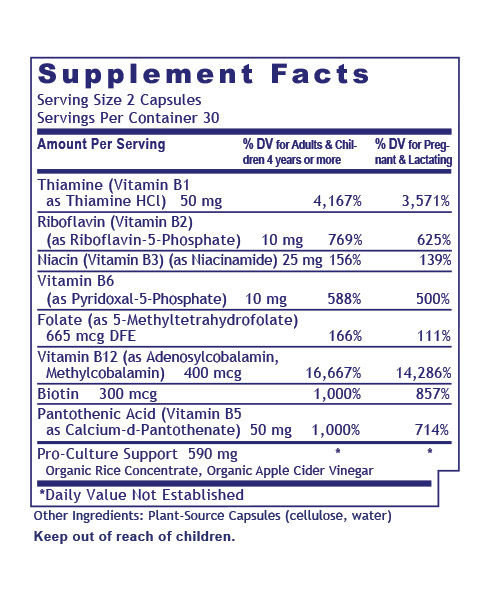B vitamins play important roles in nearly all of the body’s functional systems. Some of the wide-reaching supportive roles of B vitamins include the health of the nervous system, support for liver, skin and hair as well as maintaining muscle tone in the gastrointestinal tract.* A sufficient level of B vitamin intake is essential for maintaining adequate energy metabolism, mood balance, hormone synthesis, hemoglobin formation and proper nerve cell impulse transmissions.*
Even when you are taking only one individual vitamin B vitamin product for specific support (such as vitamin B12 or folate), it is still recommended to take a complete B vitamin supplement along with it to give you full B vitamin support. The whole B family is needed to help keep your body in balance and harmony for physical, emotional and mental health.*
Since they work as a team, the best way to take B vitamins is to consume all of them together. The vitamin B family supports whole-body health and wellness, so let’s take a closer look at these must-have nutrients:
Vitamin B1 – Thiamine HCL
Thiamine enables the body to use carbohydrates as energy and plays a central role in nerve, muscle, and heart health.* Energy transport within cells would be impossible without vitamin B1, which is involved in the creation of adenosine triphosphate (ATP).
Vitamin B2 – Riboflavin
Vitamin B2, riboflavin, helps to break down fats, proteins, and carbohydrates, making it critical to managing the energy supply of the body.* Riboflavin is a component of two major coenzymes that play a major role in energy production, cellular function and growth, and healthy metabolism function.*
Vitamin B3 – Niacin
Vitamin B3 is another superstar of the B vitamin family that supports cardiovascular health and carbohydrate metabolism.* This incredible B vitamin is also important to keep the brain healthy, providing the brain with energy to function properly.*
Vitamin B5 – Pantothenic Acid
Pantothenic acid, also known as vitamin B5, supports healthy hair, skin, eyes, and liver function by supporting the conversion of food into glucose.* Vitamin B5 plays a vital role in the production, transport, and breakdown of fats and promotes the production of acetylcholine, an important neurotransmitter.*
Vitamin B6 – Pyridoxal-5-Phosphate (P-5-P)
The active form of vitamin B6, known as P-5-P, serves as a critical cofactor in many enzymatic reactions in the body, supporting amino acid metabolism, nervous system health, and the biosynthesis of neurotransmitters such as serotonin and GABA.*
Vitamin B7 – Biotin
Well known to support healthy skin and nails, biotin is crucial for its effects in supporting healthy metabolism and regulating healthy cholesterol and blood sugar.* This B vitamin helps convert certain nutrients into energy, making it an important part of the B complex family.*
Vitamin B9 – Folate (as 5-Methyltetrahydrofolate or 5-MTHF)
Folic acid, known as vitamin B9 and folate, is an important compound that allows the body to produce DNA, RNA, and other genetic material. The active form of folate, 5-methyltetrahydrofolate (5-MTHF), is a highly bio-available form of folic acid. Working along with vitamins B12 and B6, folate helps to support healthy homocysteine metabolism.* Folate is also critical for the growth and reproduction of red blood cells and white blood cells.*
Vitamin B12 – (as Adenosylcobalamin, Methylcobalamin)
In the form of adenosylcobalamin and methylcobalamin, vitamin B-12 is critical for the healthy formation of red blood cells and the health of nerve tissues.* The metabolism of dietary carbohydrates, proteins, and fats is an essential step in energy production that requires vitamin B–12. Working along with folate and vitamin B-6, vitamin B-12 helps to support healthy homocysteine metabolism.*






